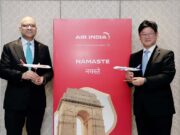The Union government on Wednesday cut the mandatory gap before all adults can take a third dose of coronavirus vaccine to six months from nine months earlier, accepting a pending suggestion by an expert committee amid concerns that the wide interval could be leaving Indians will lower protection.
The booster dose uptake in India has been lagging, with data analysed by HT showing that fewer than 20 per cent of those eligible till Tuesday had taken their so-called precaution doses even though scientific studies have shown protection to begin waning six months after a person receives the second dose.
According to people familiar with the matter, the Co-WIN service that people use to schedule their COVID-19 vaccinations will be tweaked to allow people to opt for a third dose if their last one was over six months ago. At present, only those who had their second shots nine months ago are eligible.
Union health secretary, Rajesh Bhushan, on Wednesday wrote to all states informing them about the development.
“In view of the evolving scientific evidence and global practices, standing technical subcommittee of national technical advisory group on immunisation (NTAGI) has recommended revising the duration between 2nd dose and precaution dose from existing 9 months, or 39 weeks, to 6 months, or 26 weeks. This has also been endorsed by NTAGI,” the health secretary’s letter to all chief secretaries said.
“Therefore, it has now been decided that the precaution dose for all beneficiaries from 18-59 years will be administered after completion of 6 months or 26 weeks from the date of administration of 2nd dose at private COVID vaccination centers (CVCs),” the letter added.
India opened the vaccination drive to allow third doses in April. As of Tuesday, only one of every five people eligible in the country for a booster shot turned up for a shot. In all, there were 251 million people eligible, and only around 47 million have been the precaution dose.
The reduction in the required gap between the second dose and the booster dose will more than double the number of people eligible for boosters, data shows. With the nine-month gap, 259 million or 27.5 per cent of adults will be eligible for boosters on July 7, according to health ministry data. With the reduced six-month gap, more than 350 million people are set to be added to the eligible category immediately — a total of 627.2 million or 66.7 per cent adults will become eligible for boosters on July 7 with the reduced gap.
Experts welcomed the decision to cut the gap. “With the kind of immune evasiveness we have seen with the Omicron variant, booster are required to maximise the benefit. And it has been established that antibody levels start going down after a few months; therefore, reducing the gap works,” said Jacob John, former head of virology department, Christian Medical College, Vellore.
For beneficiaries aged 60 years and health care workers and front line workers (FLWs), precaution doses will be administered under the new gap for free at government vaccination centres.
“Corresponding changes have been made in the Co-WIN system to facilitate,” it said.
In May this year, the Centre reduced the gap between second and precaution dose to a minimum of three months, from the existing nine months, for people needing to travel overseas for education, work, or pleasure.
“Indian citizens and students travelling overseas can now take the precaution dose as required by the guidelines of the destination country. This new facility will be available soon on the CoWIN portal,” announced Union health minister Mansukh Mandaviya, in May.
The government made changes on the Co-WIN portal for eligible beneficiaries to be able to book a slot, and no proof of travel was required.
The step was taken after several people made representations to the central government on reducing the gap as many countries have begun asking for a booster dose, creating hurdles for those intending to travel.
Source: PTI



















































